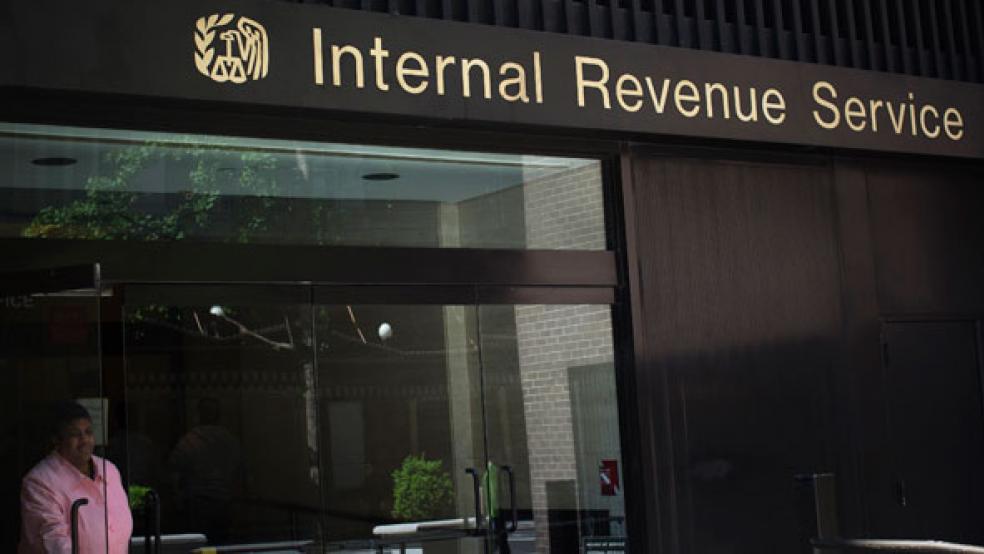As Americans rush to file their 2014 tax returns before next Tuesday’s deadline, many are encountering a cash-strapped, sorely understaffed Internal Revenue Service virtually incapable of handling the crush of last-minute filers seeking assistance and guidance.
IRS Taxpayer Assistance Centers are so swamped with people anxiously seeking help with their tax returns and problems that lines snake out the door and many are being turned away after waiting for hours. The Washington Post reported Tuesday that overcrowding at the Dallas tax assistance center got so bad in February that the fire marshal intervened and ordered an end to customers sitting on the floor and blocking exits.
Related: Budget Cuts and Mismanagement Boost IRS Tax Cheats
For those trying to phone in for help, the situation is no better. Because the IRS substantially reduced hiring of extra seasonal help during the filing season, the level of phone service dropped 40 percent below the previous year. That has meant that nationwide, six out of every ten people who have called into one of the centers couldn’t reach a customer service representative.
Even when customers can actually get through to IRS workers, they are out of luck if they are seeking specific guidance on the tax laws and filing requirements. Customer service representatives reportedly have been ordered to only inform callers of what tax forms they need, where to get them and where to look for on-line information.
“We are seeing a noticeable negative impact on taxpayer service,” IRS Commissioner John A. Koskinen said in a recent speech describing in detail the adverse impact of a steady reduction in the agency’s budget in recent years. In summing up the problems, he said that “It’s abysmal.”
Few are shedding tears over the punishing cuts that irate congressional Republicans have imposed on the IRS in recent years, in the wake of a series of high-profile scandals. IRS officials were caught spending millions of dollars on wasteful out-of-town conferences and gag videos. And congressional hearings exposed how IRS officials improperly targeted the tax-exempt status of Tea Party and other conservative political groups during the 2012 campaign.
Related: DOJ Mocks Justice by Giving Lois Lerner a Free Pass
The IRS budget for fiscal 2015 was set at roughly $10.9 billion, which is $1.2 billion or 17 percent less funding than five years ago, according to Koskinen. The IRS is currently at its lowest level of funding since 2008, even as it has assumed increased responsibilities, including administering key elements of the Affordable Care Act.
Rep. Ander Crenshaw (R-FL), chair of a House Appropriations subcommittee that oversees the IRS, blasted the agency last year during a hearing on the Obama administration’s request for an additional $1.3 billion of funds for the IRS in fiscal 2015.
“An agency that has targeted groups based on political belief, spent outrageous amounts of hard-earned taxpayer dollars on lavish conferences and videos has no business seeking a 10 percent budget increase,” Crenshaw said. “It must clean up its act.”
Koskinen argues that the IRS has corrected many of its more notable failings and misdeeds. And he warned that Congress was being “penny wise and pound foolish” by refusing to provide his agency with sufficient funding to both serve taxpayers and step up enforcement that could bring in additional revenue to the government.
Related: Underfunded IRS Begins Crucial Obamacare Test
Between 2010 and 2014, the IRS lost over 13,000 employees throughout the country, including many customer service workers and tax enforcement investigators. Because of the budget constraints, the IRS couldn’t hire seasonal employees to fill out the ranks during this tax season. They expect to lose another 3,000 workers through attrition by late this year.
“As a result, this year, we reached the point of having to make very critical performance tradeoffs,” Koskinen said. “For enforcement, the budget cuts mean we will close fewer audit and collection cases. We estimate that the reduced closures this year will translate into a loss for the government of at least $2 billion in revenue that otherwise would have been collected.”
Top Reads from The Fiscal Times:



